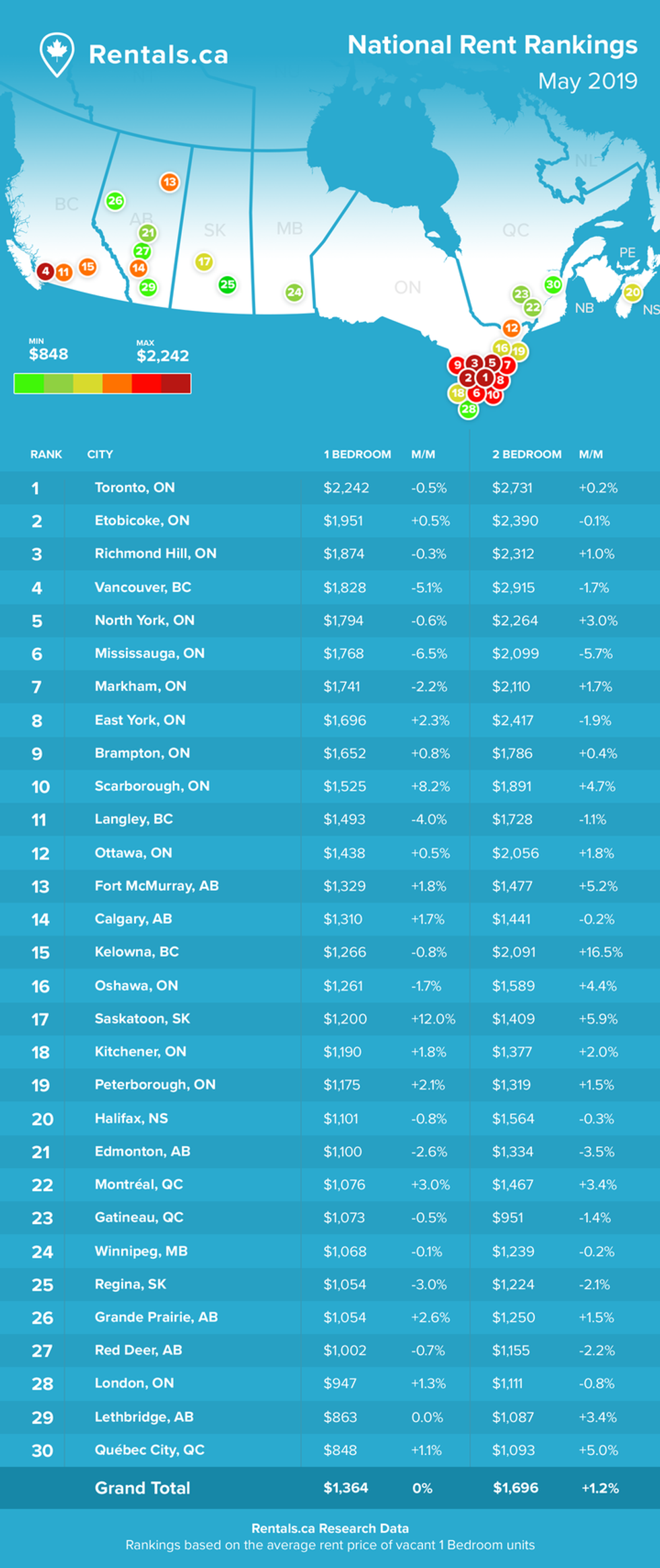High rent continues to plague Toronto despite affordability concerns.
In March, the average rent for a one-bedroom apartment increased by four per cent month-over-month to $2,234, according to the National Rent Report from Rentals.ca and Bullpen Research & Consulting. A two-bedroom apartment in the city increased by 1.2 per cent to $2,651.
READ: A $500K Home Looks Very Different Across Ontario
These large figures have kept Toronto in the No. 1 spot on the national rent report for the past three months. Rents in Mississauga and Vancouver came in second and third place, with a one bedroom costing $1,922 and $1,768, respectively.
Toronto's low vacancy rate is one of the biggest factors driving up rent. That coupled with fewer housing starts and reduced-unit turnover has contributed to the increase in prices.
“The [Toronto] metro area likely needs closer to 30,000 units annually to satisfy demand, and that level of growth isn’t likely to happen in 2019,” Rentals.ca noted.
READ: How Much Income A Single Person Needs To Live Comfortably In Toronto
The site isn’t wrong, as housing starts are on the decline in the city. A recent housing report by Altus Group predicted Toronto homebuilders will only begin work on 38,550 units this year. While this is progress, the homes won’t be completed quick enough to offset demand.
On a larger scale, the average rent for all bedroom types (from studio to five beds) in Canada was $1,888 per month in February, up from $1,854 in January, the national report found. Similarly, the median rent increased from $1,747 in January to $1,800 in February.
READ: This Is How Much Rent Cost Across Canada In March 2019
Ontario continues to be the province with the highest rental rates, averaging $2,197 per month. To put that in perspective, that’s roughly $1,000 more than the average rent in Quebec ($1,209).
The Northwest Territories and B.C. have the second and third highest rents, averaging $1,842 and $1,582, respectively. Newfoundland is the only province where rent averages below $1,000 at $883.
READ: CMHC Plans To Have All Canadians In Affordable Homes By 2030
“Less than stellar national economic data will likely put any interest rate hikes on hold for the remainder of the year, and several lenders are reducing their mortgage rates, which may induce some prospective buyers to purchase a home and relieve some pressure on the rental market,” said Ben Myers, president of Bullpen Research & Consulting.
“The pause in interest rate hikes is good news for tenants, as rent growth nationally in 2018 was the highest since 1991 according to CMHC figures,” he added. “And listings on Rentals.ca over the past several months show that rental rates continue to rise rapidly in 2019.”






















